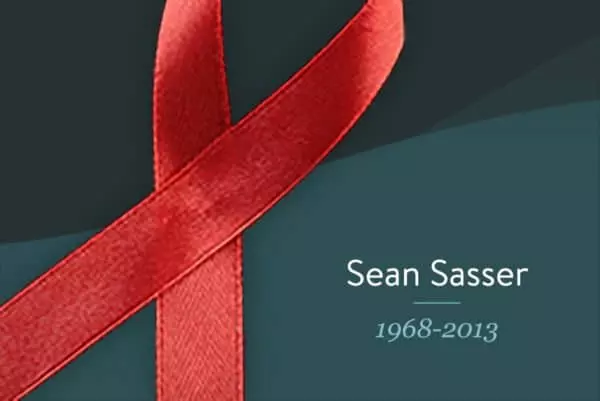
Sean Sasser came into public fame after appearing on one of the most popular seasons of The Real World: San Francisco in the early 1990s. Though not a cast member himself, Sasser’s relationship with castmate Pedro Zamora quickly became a highlight of the season. Both men had been diagnosed with HIV as young adults and met before the show began at a march in Washington, as LGBTQ and HIV/AIDS educators and activists. The two had a commitment ceremony on the show, marking a momentous occasion as one of the first openly gay couples to do so on television.
After being in the spotlight through the MTV show, Sasser lived a quieter life as a chef, while continuing to teach and speak out about AIDS and HIV. But after surviving over 25 years with HIV, a quick battle with mesothelioma unexpectedly halted his important advocacy work at just 44 years old.
Compromised Health Helped Lead to Mesothelioma
While asbestos exposure is the only clear cause of mesothelioma, there have been many cases over the years where patients have shown no history of coming into contact with the toxin. Sasser was one of many patients who didn’t have a history of working around asbestos or using asbestos products, and any potential exposure in the home or secondhand exposure remained just as unclear.
In recent years, studies have marked other potential risk factors or causes of mesothelioma, including genetics, smoking, or the simian virus (SV40). Though Sasser’s HIV diagnosis is not believed to be a cause of mesothelioma, one study suggested the compromised immune system from living so long with the disease could have contributed to his later diagnosis with the aggressive cancer.
The study detailed malignancies like mesothelioma and leukemia could be caused by infections or immunosuppression in individuals with HIV. Since HIV is known to attack the immune system, people who are HIV positive are more susceptible to infection or other diseases. Researchers noted over 16 cancers that those with HIV or AIDS have a significantly increased risk of developing compared to the general public, with some cancers showing a 77-fold increased risk. Though mesothelioma on its own is a rare cancer with only around 3,000 diagnoses in the United States each year, the study indicated individuals with HIV could face nearly double the risk of developing the disease.
Since mesothelioma is considered to be an aggressive disease, as it often metastasizes, or spreads, quickly through the body, it can be even more dangerous in those who already have worsened health. Along with the type and stage of mesothelioma, a patient’s age, gender, and overall health can greatly impact prognosis.
In Sasser’s case, the mesothelioma diagnosis came by chance, after routine blood work came back with abnormalities. After some further testing, Sasser was diagnosed with stage 4 mesothelioma. As he had faced HIV for over 25 years, his immune system had already faced damaging effects, making it even easier for the aggressive cancer to quickly have a severe impact on Sasser’s health.
Facing Stage 4 Mesothelioma
At any stage, mesothelioma has a rather poor prognosis, with most patients expected to live just 12 to 21 months. Stage 4 mesothelioma is the final stage of the disease and indicates spreading to the lymph nodes and distant organs. At this stage, patients face an average prognosis of 12 months and often no longer have curative treatment options. Instead, treatment may focus on reducing symptoms and improving quality of life with palliative care.
Along with an unexpected diagnosis, Sasser was reportedly given just six weeks to live. At the time, Sasser was working as a pastry chef at Ris, but his health quickly began to decline. Just about a week after his diagnosis, Sasser had to stay home from work, feeling too weak and ill to keep up with the demands of his job. Some reports say he underwent some palliative treatments to help make him more comfortable.
Unfortunately, the aggressive cancer took its toll on Sasser quickly. He passed away in August 2013, just one month after his diagnosis. Sasser was only 44 years old at his untimely passing, but he had accomplished a lot in his life. In addition to his culinary aspirations, Sasser had kept up with his AIDS activism as a board member of the AIDS Alliance for Children, Youth and Families. He was also an active mentor for the youth in his community.
Though mesothelioma abruptly ended his culinary career and advocacy work, Sasser will always be remembered for his bravery in the face of adversity and his important contributions to bringing awareness to HIV and AIDS.




